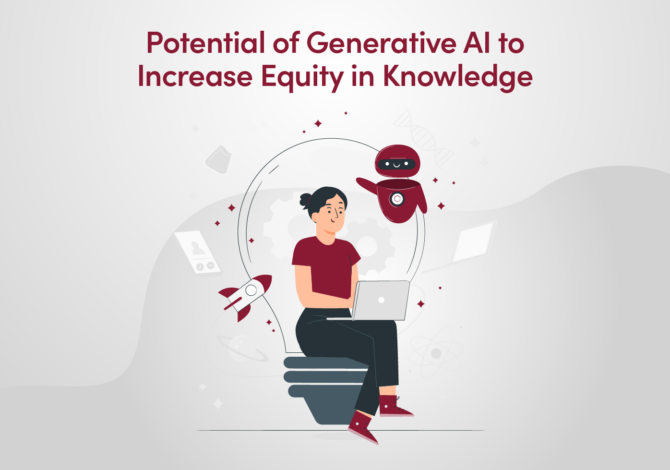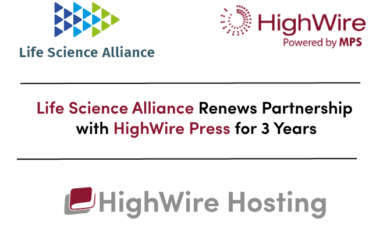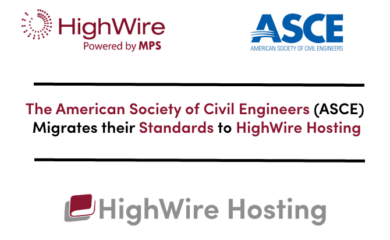The domain of scholarly publishing is witnessing significant shifts, primarily driven by the advent and integration of Artificial Intelligence (AI) tools like ChatGPT. These models are not merely technological advancements; they have begun acting as collaborative partners in the scholarly publishing process. AI’s role extends from automating mundane tasks, screening submissions for relevance and quality, detecting plagiarism, to supporting or even undertaking parts of peer review. Importantly, AI’s ability to generate content has the potential to speed up research dissemination and facilitate better understanding among the academic community.
AI’s impact on the scholarly publishing landscape is manifold – it’s streamlining the peer review process, simplifying data analysis, and automating content generation.
AI in Research: Transforming Knowledge Consumption and Delivery
Artificial Intelligence (AI), spearheaded by models such as ChatGPT, is rapidly transforming how we consume and produce research. Recent reports suggest a staggering 98% of scientific disciplines are already benefiting from AI applications. These tools are democratizing access, simplifying complex processes, and increasing efficiency across the board.
Speeding Up Knowledge Discovery
A primary obstacle facing researchers is the sheer volume of published scientific papers – approximately 2.4 million each year. Distilling relevant, actionable insights from this immense body of work is a massive challenge. Thankfully, AI tools like SciSpace Copilot and Elicit are stepping in to simplify the process. These platforms offer a smoother reading experience, extract key insights, and even provide summaries, thereby speeding up knowledge discovery.
Improving Communication
Time-consuming tasks such as writing grant applications, emails, and papers can drain a researcher’s time. Generative AI models are helping tackle this issue. AI tools like Lex and Writefull X act as intelligent word processors, enhancing the writing process. They assist researchers in refining content, improving the flow, and exploring different perspectives.
Accelerating Data Analysis
Data analysis is often hampered by the need for laborious manual categorization and organization. AI is revolutionizing this process. AI-based spreadsheet bots, visualization platforms like Olli, and coding assistants such as OpenAI Codex are helping researchers manage, analyze, and visualize data with greater speed and less effort.
Improved Peer Review
AI is increasingly being integrated into the peer review process. Tools like UNSILO and Penelope.ai help identify related articles, verify image authenticity, analyze references, and assess the structure of manuscripts, streamlining the review process and ensuring higher quality standards.
Personalized Research Assistance
AI-powered virtual research assistants like Minerva and Scholarcy provide personalized recommendations, assist in topic exploration, and offer insights into relevant research areas, helping researchers stay up-to-date with the latest advancements in their fields.
Automated Experimentation
AI-driven systems like Robot Scientists and DeepChem automate laboratory experiments, data collection, and analysis. These systems leverage machine learning algorithms to design and execute experiments, leading to faster discoveries and potentially reducing human error.
Boosting Publishing Efficiency
The process of publishing a scholarly manuscript is notoriously slow and intricate. AI solutions like Grammarly, Lex, Turnitin, and Writefull are significantly improving this workflow. They automate tasks such as formatting, referencing, plagiarism checks, and grammar checks, saving authors countless hours. Journal publishers are also integrating AI tools to expedite the review process and improve quality control.
Generative AI: Unleashing New Possibilities
Perhaps the most intriguing development in the AI landscape is the advent of generative AIs like ChatGPT and BERT. These large language models have the capability to create not just succinct summaries or accurate abstracts but entire pieces of content – from text and code to images and videos and even complete research articles. While we are still in the early stages of this technology, the potential is enormous.
These AI models are trained on massive datasets encompassing diverse domains of knowledge, allowing them to generate content that is not just grammatically correct but also contextually accurate and factually sound. As these models continue to learn and evolve, we may soon see them aiding researchers in drafting articles, creating data visualizations, or even generating code for new computational models.
However, it’s important to mention that while these tools hold great promise, they are not without challenges and potential risks. For instance, data privacy is a significant concern. The datasets used to train these models often contain sensitive information, raising questions about user privacy and data security.
Ensuring the ethical use of AI is another critical issue, especially in contexts where AI-generated content could influence decision-making or public opinion. Lastly, these models, although sophisticated, can still generate content that is misleading or incorrect, especially when operating outside their training domain. Addressing these concerns is vital to ensure that the advancements in AI bring about responsible and balanced growth.
AI Authorship and Ethical Concerns
The advent of AI in the realm of scholarly publishing has sparked a pressing discourse on authorship and ethical concerns. Central to this conversation is the question: Should AI systems be recognized as authors?
The Committee on Publication Ethics (COPE) provides clear guidance in its position statement. They state that tools like ChatGPT, despite their sophistication, do not meet the International Committee of Medical Journal Editors (ICMJE) criteria for authorship. According to the ICMJE, authorship requires substantial contributions to the conception or design of the work, drafting the work or revising it critically for important intellectual content, final approval of the version to be published, and agreement to be accountable for all aspects of the work. While AI tools can generate meaningful content, they lack the capacity to independently conceptualize, critique, approve, or assume responsibility for any work. They are tools used and directed by human authors and, therefore, should not be granted authorship.
AI’s involvement in content creation raises a host of ethical concerns. Foremost among them is the potential for the creation and dissemination of false data and attributions. AI systems, if not properly trained, monitored, and used responsibly, could inadvertently or intentionally produce incorrect or misleading information. Given AI’s persuasive power and the trust placed in its output, this could lead to significant harm.
Moreover, with the use of AI tools, the question of attribution becomes pertinent. As stated during the COPE Forum in March 2023, “Transparency in the use of AI in the publishing process is paramount. It is crucial that readers are able to understand when AI has been used, what it has been used for, and the implications this may have for the nature of the work.”
Furthermore, it’s important to acknowledge the people behind AI; as stated, “AI tools are tools, and they are used by people. The use of these tools should be transparently acknowledged in the manuscript, but it does not warrant authorship. Instead, the human actors who programmed, trained, and operated these systems should be recognized and held accountable for the work.”
Therefore, the ethical use of AI in publishing necessitates clear, consistent transparency and proper attribution. As we navigate this AI-powered future, it’s imperative that we uphold the principles of accountability, credibility, and integrity that underpin the scholarly publishing field.
AI Tools and Originality
The rise of AI tools in content creation has ignited a fascinating debate on the concept of originality. Can AI-generated text be classified as original? This is a complex question with considerable implications for the world of publishing.
The core of the argument is that AI, as it currently stands, essentially mimics human language patterns and rearranges existing information to create new texts. These systems do not invent ideas; rather, they leverage a vast array of human-authored texts to generate their output. Therefore, while the end result may appear novel, it fundamentally lacks the individual perspective and intentionality that traditionally defines originality.
Even as AI advances, the role of humans in the creative process remains paramount, especially in ensuring the veracity and ethical standing of the finished product. This was reaffirmed at the COPE Forum in March 2023, where it was stated, “Despite the efficiency of AI, the human hand in research work is irreplaceable. The ultimate responsibility for the veracity and ethical standing of the published work lies with human authors.”
Furthermore, humans excel in tasks that AI currently falls short on, such as fact-checking, verifying citations, and understanding the nuances of human research ethics. “AI tools, as sophisticated as they may be, do not have the capability to fact-check, verify citations, or understand the nuances of human research ethics. These are areas where humans remain irreplaceable. Their involvement ensures the reliability and credibility of scholarly publications.”
A key challenge in this new era of content creation is the difficulty in detecting AI-generated content. Due to the sophistication of these systems, it can be difficult to distinguish between human-authored and AI-authored texts. This poses potential problems for maintaining the integrity of scholarly publications and calls for continued advancements in detection tools. While efforts are being made in this area, it remains a significant focus for the future of AI in publishing.
AI’s Impact on Scholarly Productivity
The integration of Artificial Intelligence (AI) and machine learning tools into academia is ushering in a new era where efficiency and responsibility intersect. Researchers, continually pressed to produce high-quality, peer-reviewed publications, can leverage AI to streamline this process. However, as we lean on AI’s potential to enhance productivity, we must also consider the integral role of the author and the importance of not over-relying on this technology.
Boosting Efficiency with AI
AI tools stand ready to boost researchers’ productivity by automating numerous time-consuming tasks. From rapidly summarizing dense literature and generating meticulous bibliographies to suggesting precise revisions and drafting entire text sections, AI is equipped to lend a hand. The resultant time savings allow researchers to concentrate on their core strengths: concocting groundbreaking research ideas, carrying out intricate data analysis, and deriving insightful results. In the frenzied pace of academic publishing, AI could become an indispensable ally.
Navigating the Risks
Yet, the confluence of AI and scholarly productivity isn’t devoid of risks. We must be mindful of the possibility that automation may spawn an avalanche of low-quality papers where mass production outstrips thoughtful quality. Over-reliance on AI also threatens to marginalize the creativity and critical thinking skills intrinsic to scholarly debate. Moreover, the specter of AI-facilitated plagiarism could potentially compromise academic research’s credibility and integrity.
Changing Perspectives
As AI becomes a central character in the scholarly narrative, we may witness a shift in traditional perceptions. If AI can generate draft articles, does it alter our understanding of authorship? Might we see a divide between ‘human’ research and ‘AI-assisted’ research?
In response to these novel challenges, the COPE Forum’s March 2023 statement underscores the irreplaceable role of humans in preserving the ethical standards of research, emphasizing that “the ultimate responsibility for the veracity and ethical standing of the published work lies with human authors.”
Striking the Right Balance
As we venture further into the AI-enhanced scholarly landscape, it becomes increasingly crucial to maintain equilibrium. Automation ought to supplement the writing process, not overshadow the human creativity and critical thinking that foster scholarly innovation. By carefully navigating these complexities, the academic community can utilize AI’s advantages, boosting scholarly productivity while safeguarding the highest standards of quality and ethics.
This way, we can ensure that while AI enhances scholarly productivity, it does so by providing researchers the space to innovate and express rather than overshadowing their unique contributions to the world of knowledge.
Reimagining Scholarly Publishing in the Era of AI
The trajectory of scholarly publishing is evolving, shaped by the emergent capacities of Artificial Intelligence (AI). AI’s applications stretch across the spectrum of the publishing process, enhancing efficiencies from pre-peer review checks to the peer review process itself. We are entering a new era where AI can play a significant role in content creation, validation, and generation, driven by machine learning and NLP.
However, as we journey into this new era, it’s crucial to ensure that the foundational values and principles of scholarly publishing remain intact. This calls for a strategic and collaborative effort from AI researchers, publishers, and scholars to ensure AI’s ethical and responsible use within the research ecosystem.
Several initiatives are already at the forefront of preserving integrity in the realm of scientific research. The STM Integrity Hub (International Association of Scientific, Technical, and Medical Publishers) aims to enhance collaboration, establish best practices, and facilitate the sharing of technologies and policies in the fight against research misconduct. The National Information Standards Organization (NISO) has also initiated the Content and Rigor Evaluation in Computer Science (CREC) working group, which focuses on ensuring transparency and reliability in computer science research.
Further, multiple software solutions are reinforcing the quality and integrity of research output. Tools like iThenticate assist in detecting plagiarism, while Scite provides insights into how a scientific report has been cited, helping to highlight reliable research. SciScore and Ripeta enhance the reproducibility of research by evaluating the rigor of scientific methodology. Moreover, several image manipulation detection products such as Lpixel, Proofig, Imagetwin, FigCheck, and ImaCheck contribute to maintaining the authenticity of visual data in research.
As we move forward, it is essential for the academic community to embrace AI as a powerful tool while upholding the values and principles that define scholarly publishing. Collaboration between AI researchers, publishers, and scholars is vital to ensure the responsible and ethical implementation of AI in research processes. By harnessing the transformative potential of AI while preserving the core tenets of academic pursuit, we can usher in a new era of scholarly publishing that is efficient, innovative, and maintains the highest standards of quality and integrity.



